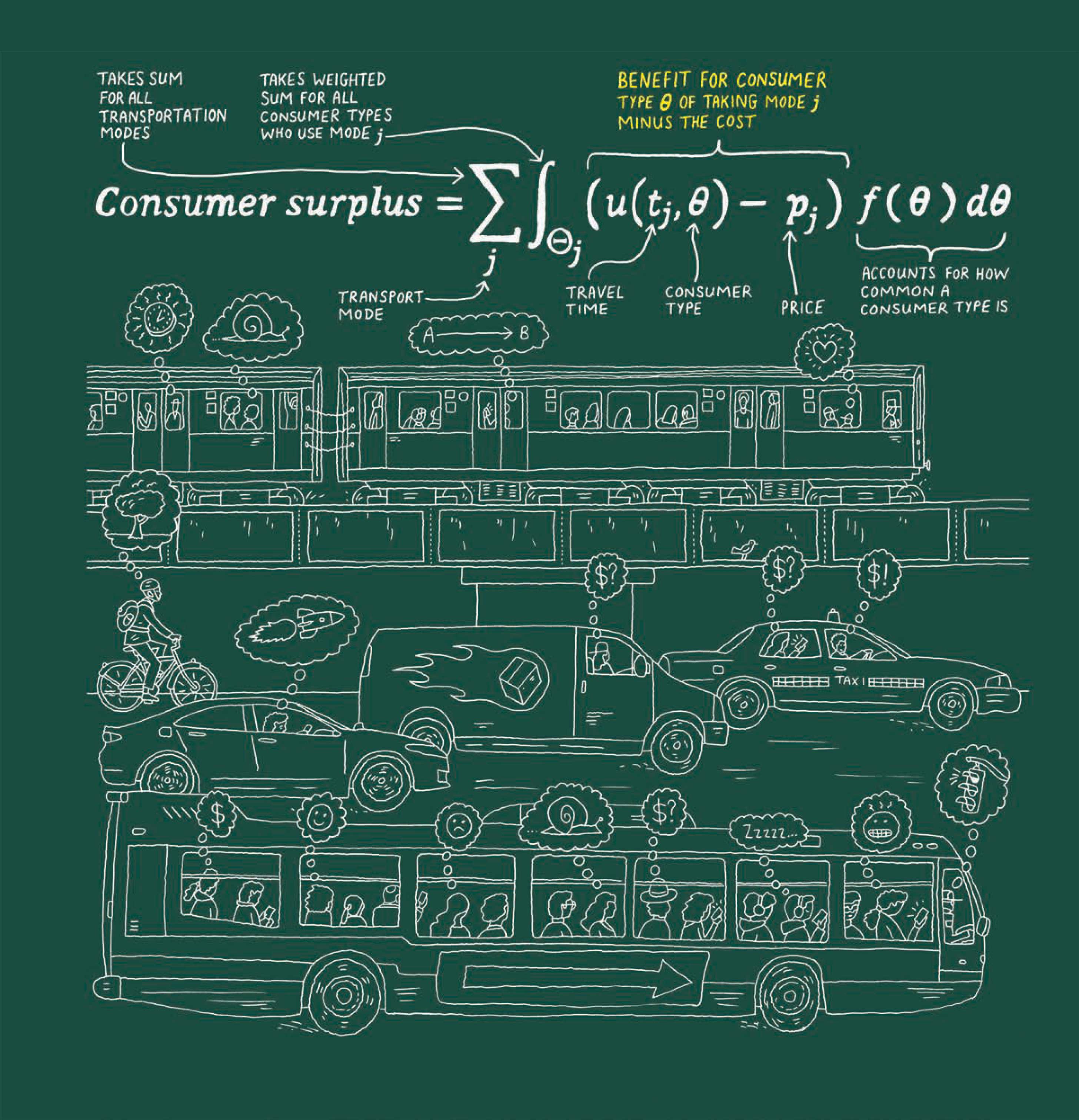Many cities would like to ease road congestion, but their leaders can’t agree how best to do so. Making public transit rides cheaper and more frequent would require funding, while instituting road taxes could be unpopular. But combining these policies—using revenues raised from road taxes to subsidize public transportation—could ease the burden on middle-income commuters, suggests a study by a group of researchers that includes Chicago Booth’s Milena Almagro. The researchers analyzed the impact of various transport policies on Chicago commuters, focusing on consumer surplus—the benefit derived from a transportation mode under a given policy minus the cost to commuters of using that mode. By aggregating across different modes (such as public transit, private car, or ride-hailing service) and consumer types (grouped according to income, transport preference, and car ownership), the researchers were able to measure the surplus generated by different policies and combinations of them. To learn more, read “Charge Drivers to Improve Public Transit.”

Illustration by Peter Arkle
Your Privacy
We want to demonstrate our commitment to your privacy. Please review Chicago Booth's privacy notice, which provides information explaining how and why we collect particular information when you visit our website.
